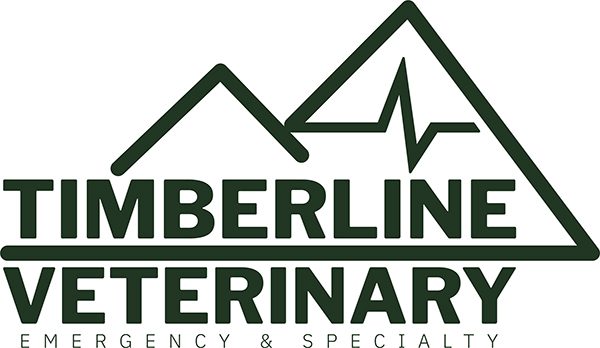10 Tips for Seeking Veterinary Care During Financial Hardship

10 Tips for Seeking Veterinary Care During Financial Hardship
The illness of a loved family pet is always stressful. It is more stressful when the economy feels uncertain or finances are tight and a veterinary visit is needed. Preparation in advance and knowing some important questions to ask may help either avoid high veterinary bills or help make payment more manageable. This blog offers practical tips for managing veterinary care during financial hardship, helping you prepare ahead and make informed decisions.

Tip #1: Pet Proof Your Home
One of the most common reasons for a visit to a veterinary emergency clinic is ingestion of a toxin. Knowing which things are toxic to your pet and keeping them out of reach can save you money. Easter and Asiatic lilies can cause acute kidney failure in cats, even a small bit of pollen is enough to cause damage. Grapes and raisins can also cause kidney failure in some dogs. Chocolate and xylitol are harmless to humans but can be deadly in pets. Slug bait (metaldehyde containing), compost, and some mushrooms that grow wild can cause severe tremors and even seizures in dogs that eat these products. The National Animal Poison Center website is a good resource for toxicity information.
Tip #2: Get the Complete Series of Puppy and Kitten Shots
Puppies and kittens need a SERIES of vaccines given 3-4 weeks apart to be fully protected against infectious diseases such as parvovirus and panleukopenia. If only one vaccine is given, or if the vaccines are not given at the right length apart, the animal will not make enough antibodies to be fully protected. The illnesses that these vaccines prevent can be expensive and life threatening. As fun as it is to take your puppy to the dog park, wait until they are 16 weeks and have received the full series of vaccines including rabies.
Tip #3: Spay or Neuter Your Pet
Uterine infections that require emergency surgery are common in older unsprayed female dogs. Unexpected pregnancies can also end in C-section, even if there is only one puppy or kitten. Mammary cancers are much more common in dogs that were not spayed. Male dogs can be prone to severe prostate infections and testicular tumors.
Tip #4: Plan for the Unexpected
Pet insurance is more readily available than in the past. For most people, the need for emergency care on even one occasion will make the premiums worthwhile. However, pet insurance does not pay the veterinary bills directly so it is important to have an emergency fund set up to cover unexpected pet care while waiting for the insurance reimbursement. If you are considering breeding your pet, make sure you have enough money saved if a C-section is needed on an emergency basis. Having a financial plan in place for veterinary care during financial hardship can help reduce stress when emergencies arise.
Tip #5: Do Not Give Your Pet Any Medication Without Consulting a Veterinarian
Many pain medications that we commonly take can be extremely dangerous to our pets. When a pet is in pain, it is tempting to try to give them something at home. However, a single Tylenol can cause a life-threatening blood disorder in cats. Ibuprofen (Advil) and Naproxen (Aleve) can cause severe stomach ulcers and even kidney damage in both dogs and cats. Some herbal supplements can interfere with medications your pet is taking and should not be added without talking with your vet. Most animal hospitals, and especially emergency clinics, have a staff member available to answer questions so CALL first before giving any medication or supplement to your pet.
Tip #6: Seek Medical Treatment Early
If you think your pet might be very ill or might have gotten into something, it is best to have them seen as soon as possible. Toxicities such as rat bait exposure are readily treatable when discovered and addressed, but are life threatening and expensive if treatment is delayed. If your pet becomes very ill on a weekend, treatment at an emergency clinic may be most cost effective even if the initial fee is more expensive. A delay of even 12 hours in a pet with an intestinal blockage may be the difference between a simple surgery to remove the object and a complicated surgery with bowel removal. Emergency veterinary clinics that are open at night and on the weekends are now present in most parts of the country.
Tip #7: Provide Your Veterinarian With an Accurate History.
When your pet is sick, your veterinarian will most likely get a diagnosis quickly if you can provide them with a detailed accurate history. It is important that your vet knows any medications you have given your pet, any supplements or herbs they are taking, or anything that they might have gotten into. Let your vet know when the problem started, anything that might have been associated with the start of the problem, and all the symptoms your pet is having. Also, be sure to let your veterinarian know if your pet travels with you as some diseases are only present in certain parts of the country. It is important to communicate your major reason for your visit, your goals for pet care, and any previous or current but not active health problems your pet may have.
Tip #8: Ask Questions
If diagnostics are suggested, ask what they will tell your veterinarian and how that will change the treatment plan. When medications are sent home, ASK if you aren’t sure how to give them to your pet. Compliance with medication instructions is one of the best things you can do to make sure your pet gets better and doesn’t need further care. If your pet seems to be worse after starting a medication, call and ask whether the signs you are seeing could be a medication side effect.
Tip #9: Skipping Diagnostics in the Short Term May Cost You More in the Long Term
A cat with severe jaundice was once referred to our hospital for ultrasound for liver disease. The ultrasound confirmed the cat had liver disease, but we didn’t know the underlying cause. We started treatment, but it wasn’t until 2 days later when radiographs were taken and a penny was seen in the stomach that we knew that the cat had copper toxicity. Pennies are metal so they are easy to see on radiographs but very hard to see within the stomach on ultrasound. By originally skipping this step, the true diagnosis and thus targeted treatment was delayed for several days. For pet owners trying to save money, skipping steps can seem wise in the moment, but it may end up increasing the cost of veterinary care during financial hardship in the long run.
Tip #10: Ask Your Veterinarian About Medical Credit Plans
Many veterinarians now offer payment plans through organizations such as CareCredit or ScratchPay. These are credit cards that are specifically for medical, dental, and veterinary expenses. Some payment options will provide no interest credit for 6 months. Information about these programs can be found online but it is important to check with your veterinarian to see which specific plans they offer.
Recent Posts
About Us
Timberline Veterinary Emergency & Specialty is a locally owned, veterinarian-led hospital founded in 2023 by Dr. Laura Ahlgrim, Dr. Beth Davidow, and Dr. Chris Bailey. As Seattle residents, we understand that pets are family—and when emergencies arise, you need care you can trust. Our mission is to provide exceptional emergency and specialty services with compassion, transparency, and medical excellence. We're here to support your pet’s health while fostering a stronger, kinder veterinary community.
